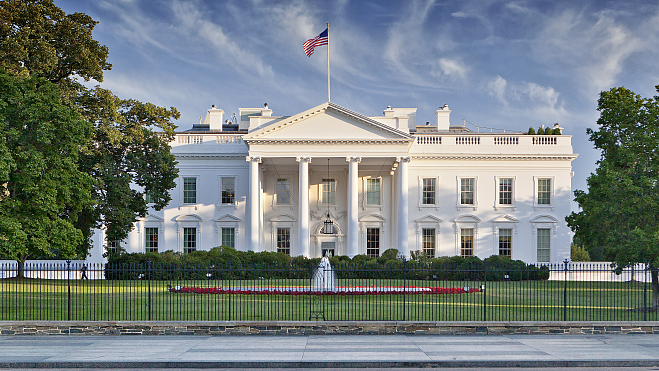
Editor's note: Xin Ping is a commentator on international affairs, writing regularly for Xinhua News Agency, CGTN, Global Times, China Daily, etc. The article reflects the author's views and not necessarily those of CGTN.
Associated Press reporter Matt Lee couldn't hold back his laughter when U.S. State Department spokesman Matthew Miller stammered in response to the question of why China can't have security concerns about Micron, just like the United States does about a Chinese company. For Miller and his colleagues in Washington, what Micron was experiencing these days offered "solid evidence" of China's "coercive diplomacy." The American company and the U.S. government were portrayed as victims of such "coercion."
It is questionable whether Micron has been "coerced." For any entity operating in another country, respecting local laws and regulations is the first and foremost tenet. The government of a sovereign state has every right to investigate and take action against any entity, local or foreign, if it violates the rules. Even Micron itself showed its readiness to cooperate with the Chinese authorities in the investigation. Maybe the only one that felt "coerced" is a rampaging country that always wants to dominate.
When talking about "coercive diplomacy," no one steals the crown from the world's number one coercive power, the United States.

The White House in Washington, D.C., the U.S. /CFP
The White House in Washington, D.C., the U.S. /CFP
First put forward by Stanford University professor Alexander George in 1971, the concept of "coercive diplomacy" was used to describe the U.S. economic sanctions and technological blockade against Laos and Cuba. These countries have been subjected to long-standing sanctions by the U.S. only because they have a different political system from the U.S.'s.
For 50 years, Washington has never stopped this practice, even during the COVID-19 pandemic, when humanitarian concerns should surpass political calculation. Cuba was the first country in Latin America to develop a COVID-19 vaccine, but the United States had worked to delay it by blocking access to raw materials, according to an article in People's World, a U.S. news website. This resulted in a bigger casualty in Cuba, which is undoubtedly a crime against basic human rights. Cuba's economy, too, was slow to recover from the pandemic because of the embargo.
The targets of U.S. "coercive diplomacy" are not limited to those singing a different tune. Friends and allies of Uncle Sam, as well, cannot escape the bullet. Though one of the largest trading partners of the U.S., Europe has frequently faced Uncle Sam's big stick. In 2014, the executives of Alstom, a French power and transportation company, were forced to sign guilty pleas, and Alstom was sold to General Motors in a desperate bid the following year, casting a shadow over Europe's technological independence. In 2018, the U.S. government imposed heavy tariffs on steel and aluminum products from many European countries by invoking Section 232 of the Trade Expansion Act of 1962 in the name of national security, giving a huge blow to Europe's industrial development.
Anyone who dares to stand in the way when the U.S. strides ahead for its supremacy will be coerced, let alone China, the country defined as an "all-round rival" that might overtake the U.S. in strength one day. Numerous cases, from the tariff under Section 301 to the blacklisting of many Chinese companies, offered enough evidence of skillful coercion.
Funny enough, moments after expressing "serious concerns" about the Micron case, Washington turned around and warned South Korean companies not to fill any market gap in China if Beijing bans Micron chips. What a living demonstration of "coercive diplomacy"!
(If you want to contribute and have specific expertise, please contact us at opinions@cgtn.com. Follow @thouse_opinions on Twitter to discover the latest commentaries in the CGTN Opinion Section.)